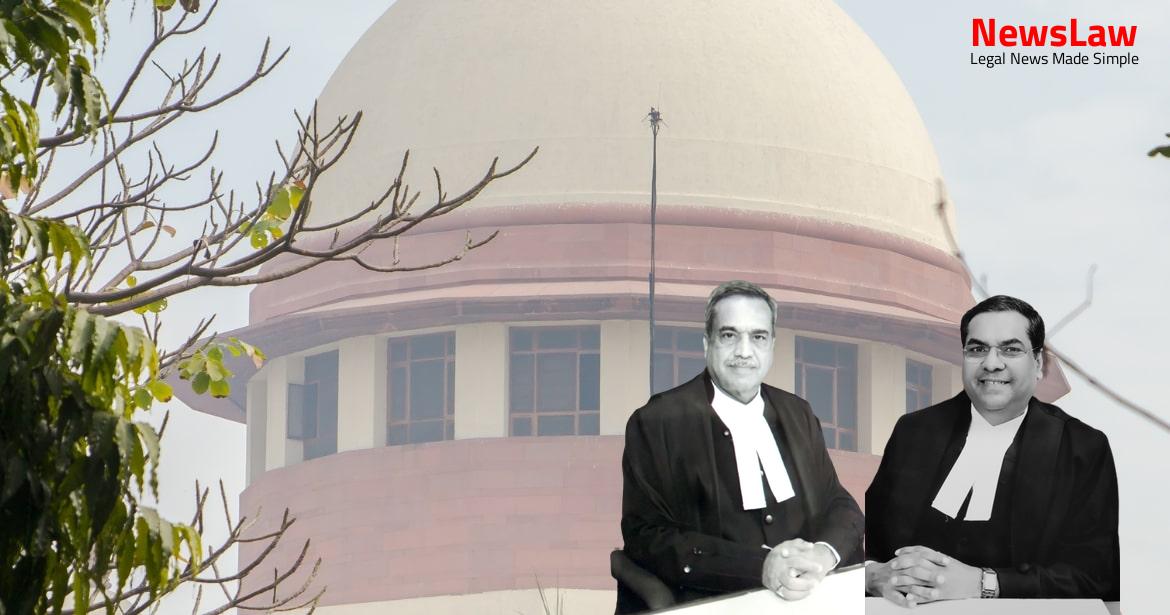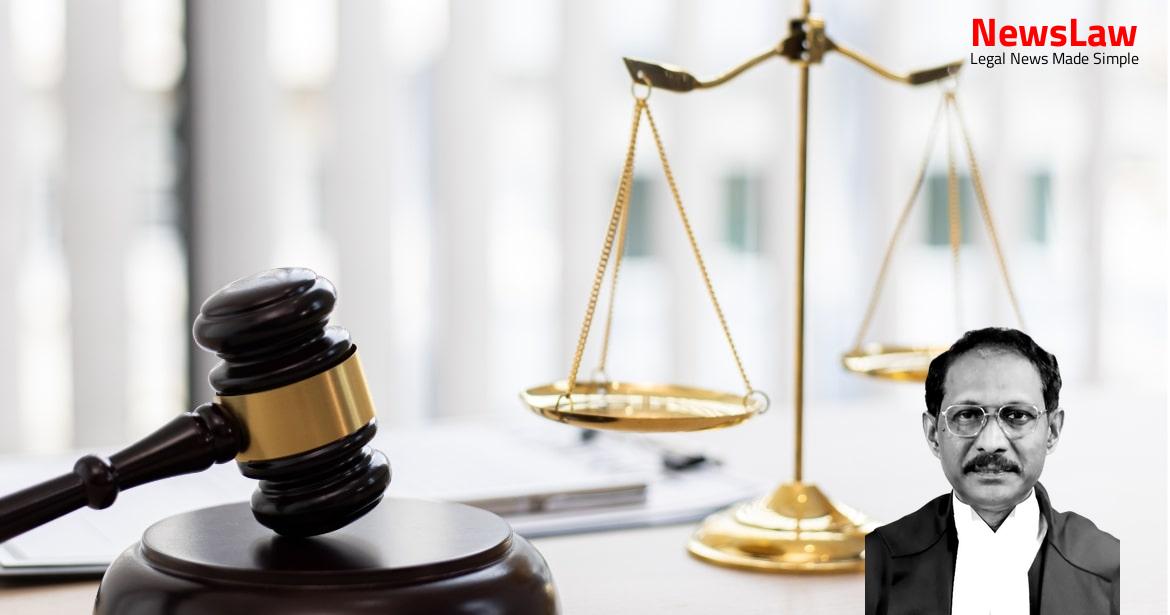Delve into the judicial examination of arbitrary taxation statutes to uphold constitutional principles of fairness and equality. The focus is on the court’s legal analysis and the implications for tax laws. Stay tuned to understand how the judiciary is tackling discriminatory provisions in tax legislation.
Facts
- A stay of the operation of the order of the assessing officer was granted by the Tribunal for a period of six months on 31.05.2013.
- The final assessment order adverse to the assessee was passed on 19.10.2012 for the year 2008-2009.
- The Respondent-assessee is an Indian company engaged in the business of manufacturing and sale of concentrates, fruit juices, processing of rice, and trading of goods for exports.
- The assessee is a group company of the multi-national Pepsico Inc., incorporated in the United States of America.
- The stay on the assessment order was extended until 28.05.2014, commencing from the initial stay granted on 31.05.2013.
- The total income of the assessee-company was declared as INR 92,54,89,822.
- The assessee-company merged with Pepsico India Holdings Pvt. Ltd. from 01.04.2010 as per the approved scheme of arrangement by the Hon’ble Punjab and Haryana High Court.
- On 30.09.2008, a return of income was filed for the year under consideration.
- Aggrieved by the adverse order, the assessee filed an appeal before the Income Tax Appellate Tribunal on 29.04.2013.
- The Delhi High Court struck down a part of the third proviso to Section 254(2A) of the Income Tax Act
- The part that was struck down did not allow the extension of a stay order beyond 365 days even if the assessee was not responsible for the delay in hearing the appeal
Also Read: Interpretation of Section 43B: Debentures vs. Interest Payment
Arguments
- The petitioner argued that there is no right to stay of a judgment in an appellate proceeding as it is dependent upon the discretion of the Appellate Court.
- Equitable considerations are not to be given effect in interpreting a tax statute, but they are not wholly irrelevant when the constitutional validity of the provision is challenged.
- The discretionary remedy of a stay is considered a part of the right to appeal, which is a statutory right and can be taken away by the legislature.
- Article 14 of the Constitution of India is not to be applied mechanically concerning tax legislation, allowing for more flexibility.
- Judgments have been cited to show that discriminatory taxation has been struck down under Article 14 of the Constitution of India.
- The State cannot justify discrimination under the guise of a ‘policy’ if the statutory provision itself is arbitrary or discriminatory.
- Equitable considerations and arguments based on hardship are deemed irrelevant in the context of tax statutes, which are to be interpreted literally.
Also Read: Ensuring Transparency in Electoral Processes
Analysis
- In legal proceedings, the delay in disposal within the stipulated time should not harm the litigant due to factors outside their control
- The importance of classification being based on intelligible differentia and having a rational relation to the legislation’s objective
- A policy or object that is arbitrary or discriminatory in itself can be struck down as unconstitutional
- Examples of discriminatory taxation statutes being invalidated by the courts
- The need for providing equal treatment under the law and avoiding manifest arbitrariness in legislative provisions
- Judicial principles like ‘actus curiae neminem gravabit’ are crucial in ensuring fair treatment in legal proceedings
- The provision introduced by the Finance Act, 2008, which limits the extension of stay to 365 days even if the delay is not attributable to the assessee, is considered arbitrary and discriminatory.
- The power to grant stay as incidental to appellate jurisdiction should not be curtailed unjustly, especially when the delay is not the fault of the assessee.
- The lack of classification and differentiation between assesses who cause delays and those who don’t leads to inequality and violates Article 14 of the Constitution.
- The provision should be construed in a manner consistent with constitutional principles to avoid unreasonableness and discrimination.
- The intention of the provision was to avoid delay but unfairly affects assessees who are not responsible for the delays.
- The withdrawal of stay after 365 days, regardless of the cause of delay, renders the right to appeal illusory and infringes on the fundamental right of appeal.
- Originally, the Appellate Tribunal could hear and decide an appeal within four years from the end of the financial year in which the appeal was filed.
- Provisos were added in 2001, indicating that if an order of stay was made, the appeal had to be disposed of within 180 days from the date of such order.
- If the appeal was not disposed of within the specified period, the stay order would stand vacated.
- In 2007, the provision was amended to allow the Appellate Tribunal to pass an order of stay for a maximum of 180 days, with the appeal required to be disposed of within that period.
- If the appeal was not disposed of within the specified period, the Appellate Tribunal could extend the period of stay, with a total limit of 365 days, but the appeal had to be disposed of within the extended stay period.
- The Appellate Tribunal could pass an order of stay for up to 180 days after considering the merits of the application by the assessee.
- Third proviso to Section 254(2A) of the Income Tax Act to be read without the word ‘even’ and the words ‘is not’ after the words ‘delay in disposing of the appeal’
- Any order of stay will stand vacated after the specified period if delay in disposing of the appeal is attributable to the assessee
- Judgments of various High Courts following the above declaration of law are considered correct
Also Read: Analysis of Novation and Arbitration Clauses in Legal Dispute
Decision
- The appeals of the revenue are dismissed
Case Title: DEPUTY COMMISSIONER OF INCOME TAX Vs. M/S PEPSI FOODS LTD. (NOW PEPSICO INDIA HOLDINGS PVT. LTD.) (2021 INSC 227)
Case Number: C.A. No.-001106-001106 / 2021



